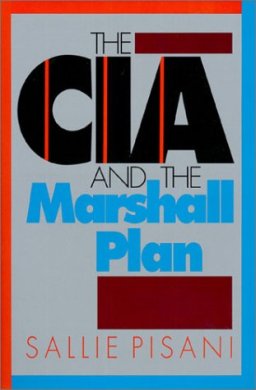Sallie Pisani,
University of Edinburgh Press, 1992 (UK)
University Press of Kansas, 1991 (USA)
No price stated
Pisani lays out her thesis on pp. 7/8.
‘My claim is that the emphasis on paramilitary operations in the literature has led to a distorted picture of covert operations in this seminal period. In fact, a recreation of the predominant views with the OPC and the CIA in the early Cold War era, 1946-52, reveals that paramilitary operations were regarded as only one method on a spectrum of covert operations. Indeed, paramilitary ventures were undertaken with reluctance and generally as a measure of last resort. More often the agency relied upon covert economic, political, and psychological operations because they suited the circumstances and were more difficult to detect than paramilitary operations.’
But where in this literature on the covert operations of the 46-52 period is this focus on ‘paramilitary operations’? The well known examples offered — Cuba, Guatemala, Vietnam — all fall outside this period. I am no expert on the literature of OPC/CIA but I am not even sure that there is anything resembling ‘a picture of the covert operations of this period’. If asked about CIA covert operations in this period I would have difficulty producing much information about anything before the 1953 coup in Iran. Some bits on Italy, some on Germany, the Congress for Cultural Freedom… Pisani’s thesis is correcting a fault only she perceives.
Pisani shows how a smallish group of what one of their number, Richard Bissell, called ‘determined interventionists’ set about trying to reconstruct the post-WW2 world in the interests of U.S. capital. Many of them began in private organisations, like the Ford Foundation, but gravitated to Washington when they found such private forums unwilling to think big enough or act fast enough. In the capitol they staffed and motivated the Economic Cooperation Administration, the Marshall Plan, Economic Recovery Programme, and eventually the Office of Policy Coordination and the CIA.
The term ‘imperialism’ is rarely used. ‘Intervention’ is the new euphemism: her potted history of the expansion of American imperialism up to World War 2 is called ‘A Grounding in American Interventionism’. And there are some curious emphases. The 1946-7 period, running up to and including the Marshall Plan, is some of the most bitterly fought ground in post-war historiography. Yet Pisani whizzes across the period between pages 58 and 63 as if the Revisionist Wars had never taken place. Showing how the Council on Foreign Relations served as the sounding board, ideology-generator and integration device for the East Coast elite busy fighting the good fight (with some clandestine methods) in Europe, this is thus something of a companion volume to Laurence Shoup and William Minter’s study of the Council on Foreign Relations, Imperial Brain Trust (Monthly Review Press 1977); yet Shoup and Minter are not in her bibliography. Still, let’s be grateful for what we’ve got. In illustrating that both the Marshall Plan and the ECA provided cover for (yes, non paramilitary) covert operations, Pisani has made an important contribution to the historiography of the Cold War, showing the continuity between World War II methods and the eventual emergence of a CIA dominated by the covert operators.
A fictional account of this period can be found in certain sections of Charles McCarry’s novels about his erstwhile employers the CIA. McCarry has been the most subtle of the Agency’s apologists over the past ten years — and a beautiful writer, to boot. His most recent, Second Sight, includes some passages about the early years of the CIA which would be music to the ears of people like Richard Bissel. On p. 332, for example, he talks of the CIA in its ‘great, early days ….. manned by the flower of American youth…. something almost entirely new in history, a secret intelligence service that was dedicated to doing good in the world by stealth.’ Ah, the self-confidence (and self-delusion) in ‘doing good in the world by stealth’.
RR
